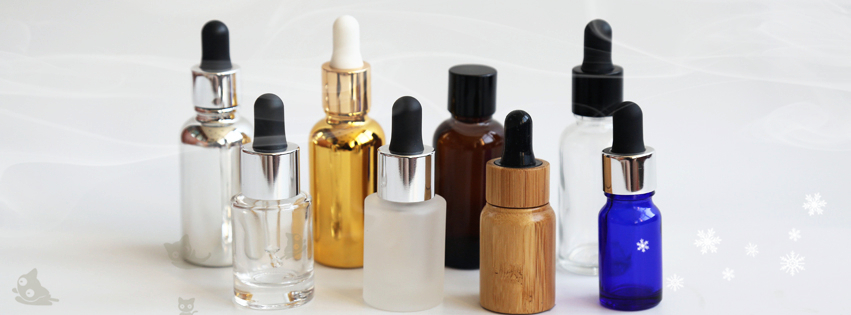Essential oil is an aromatic liquid extracted from flowers, leaves, stems, roots or fruits of natural plants. People use special techniques, such as meridian point massage or deep breathing, to introduce essential oil into the human body, which is called “aromatherapy”.
Three types of essential oil:
1. Single essential oil
It is a single plant extract extracted from the plant’s aroma and is a pure essential oil that has not been transferred. Single essential oil can be used alone or mixed. The raw materials of essential oil must be medicinal plants, usually named after plants, such as lavender essential oil, rose essential oil, mint essential oil, etc. Besides lavender essential oil and tea tree essential oil, which can directly contact the skin in small amount, it is generally not recommended to apply other essential oils directly on the skin to avoid aggravating the absorption burden of the skin and causing skin allergy.
2. Compound essential oil
It refers to the aromatic liquid that can be used directly by mixing two or more kinds of essential oils. Most of the compound essential oils are diluted with moderate concentration and can be better absorbed by human body without any side effects. Compound essential oil can be directly applied on the face, arms, legs and other parts, which can significantly improve the skin texture or burn excess fat in the body.
3. Base oil
Also known as medium oil, it is a kind of vegetable oil used to dilute the essential oil. Base oil is a kind of non-volatile oil extracted from plant seeds and fruits. The vegetable base oil itself has certain curative effect. When diluting and blending the single essential oil, it can improve the overall efficacy of the essential oil, especially can quickly make the body generate heat and refuse the intake of excess protein. Common base oils are grape seed oil, sweet almond oil, olive oil, wheat germ oil, evening primrose oil, etc.
Three flavors of essential oil:
1. High aroma essential oil
Most of them are penetrating and can make people excited or active. But the volatility is also the highest, so its preservation is very low, the service life is very short, can not stand long.
2. Medium essential oil
Generally, it has the function of stabilizing, balancing and stabilizing the body and mind, and has a certain soothing effect on the tired body and fluctuating emotions. The essence of essential oil is between high aroma and low essential oil. It is widely used in blending essential oils.
3. Low aroma essential oil
It belongs to the “long flow” type. At the beginning, the fragrance is light and may not even be felt. But in fact, the aroma of low aroma essential oil is very durable, and some can last for a week, which means that 1 weeks can smell a faint fragrance of essential oil.
How is essential oil absorbed:
1. Respiratory absorption
The respiratory system absorbs essential oil most quickly. When sniffing essential oil, its aromatic molecules can promote the release of relevant energy from the human nervous system, and then produce the effect of calming, soothing, stimulating or exciting.
2. Skin absorption
The speed of skin absorbing essential oil is second only to respiratory system. Essential oil molecules are very small. They can directly pass through the pores of the skin and enter into the microvessels in the epidermis of the human body, so as to promote blood circulation and lymphatic system circulation in the body, help discharge toxins in the body, and adjust or stimulate the nervous system.
3. Digestive system absorption
Unless you have a very comprehensive understanding of the properties of herbal essential oil, do not easily try oral essential oil. In this way, it is better to try less, so as not to cause “essential oil poisoning” and other adverse reactions.
Cosmetic effect of aromatic essential oils
1. Effect on beauty
The molecular structure of essential oil is small, natural and pure. It is easy to penetrate into the skin, dissolve in fat and enter the human body, so as to improve the dullness and dryness of the skin from the source and achieve the purpose of moisturizing the skin.
In addition, essential oil can promote the blood circulation of the blood system and lymphatic system, clean up and discharge the garbage in the body in time, so as to achieve the overall balance of body, heart and spirit, and make people exude fresh and natural charm from the inside out.
2. Effects on Physiology
Herbal essential oil is known as “plant hormone”, so many essential oils are similar to hormones in nature and play an important role in human physiological health. According to traditional Chinese medicine, the aroma of essential oil is a kind of Qi energy. After contacting with the human body, this Qi energy helps to maintain the balance of Qi and blood in the human body, so that the human body has enough blood to nourish the four limbs and bones, thus regulating the endocrine, and strengthening the reproductive system functions of women’s breasts, uterus and ovaries.
3. The effect on Psychology
When you are tired, choose a herbal essential oil that you like. The fragrance can help you drive away fatigue. You should know that herbal essential oil has a fragrant smell. After entering the human brain through olfaction, it can stimulate the cerebral cortex to secrete hormones, adjust the human nerves, eliminate anxiety, relieve stress, and help the body and mind relax to the most comfortable state.
Post time: May-14-2021

